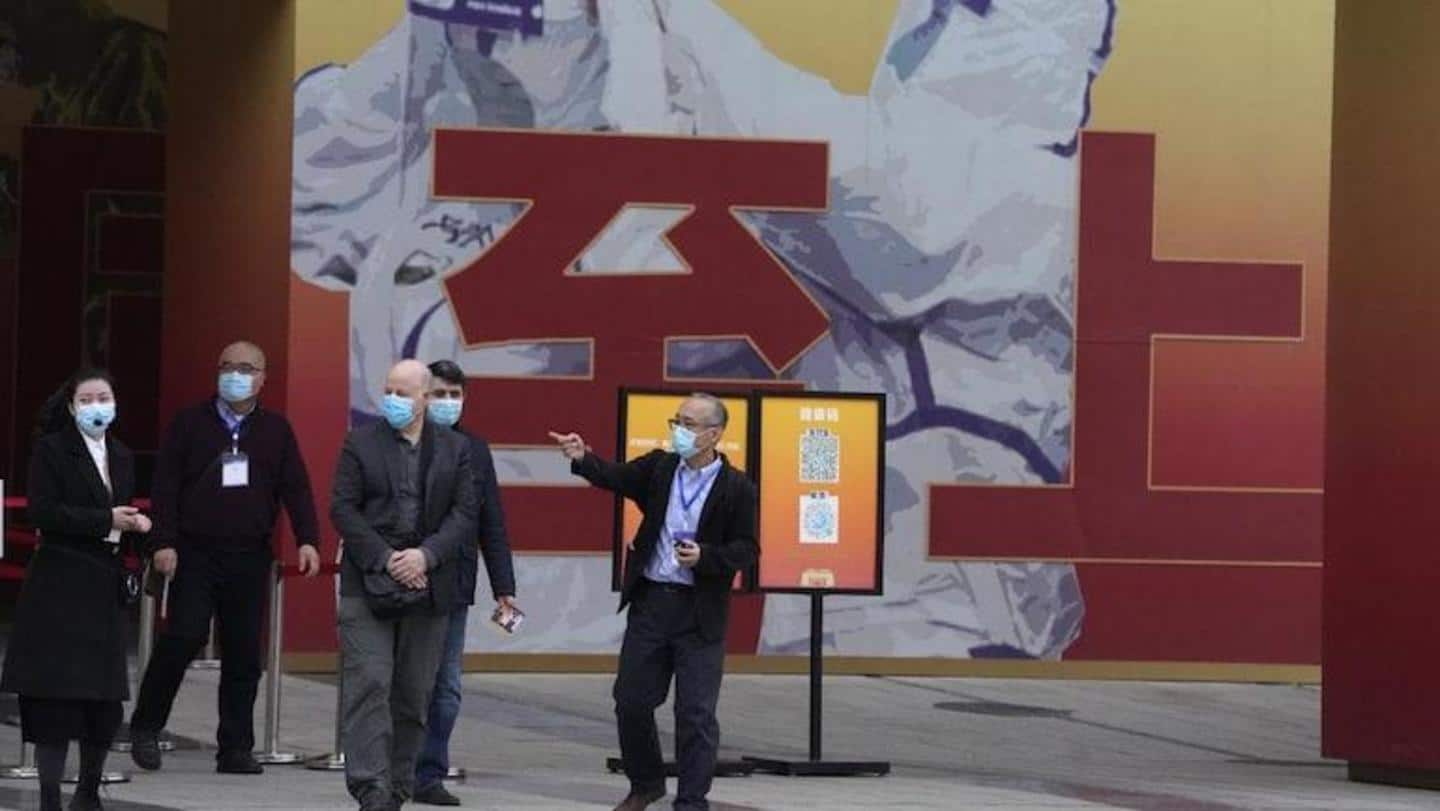
China granted WHO team full access in Wuhan
What's the story
A member of the World Health Organization expert team investigating the origins of the coronavirus in Wuhan said that the Chinese side has granted full access to all sites and personnel the team had requested access to. Peter Daszak said that team members had submitted a deeply considered list of places and people to include in their investigation and that no objections were raised.
Quote
'Have been to all key places we wanted to visit'
"We were asked where we wanted to go. We gave our hosts a list and as you can see, we've been to all the key places. Every place we asked to see, everyone we wanted to meet, we were granted access," Daszak said.
COVID-19 research
We were able to speak with people freely: Daszak
The team was given wide access when visiting hospitals that treated patients in the initial outbreak. "To meet the first clinicians who took in the first patients and ask them what they saw is incredible," Daszak said. The same level of access was given at the Huanan Seafood Market that was linked to early case clusters. That included meeting with vendors and market managers.
Research and findings
WHO team to present findings before their departure
The team has concluded site visits and will spend the next few days trolling through data and consulting with Chinese experts before presenting a summary of their findings at a news briefing prior to their departure on Wednesday. "I can't say much about what we've found because we're at a point where teams are coming together looking at different pathways, different issues," Daszak said.
Quote
Numerous possibilities regarding the origin of virus
"Questions include what were the first cases, what was the link with animals, and what, if any, was the role of the so-called cold chain. We're looking at every hypothesis and seeing where the data takes us," Daszak said.
Speculations around WIV
Suspicions surrounding the Wuhan Institute of Virology were politicized: Daszak
There were speculations that the Wuhan Institute of Virology may have been the origin of the outbreak because of its large collection of bat virus specimens and that Chinese authorities were covering up the truth. However, Daszak said the level of openness they were met with at the high-security institute wasn't anticipated, and that suspicions surrounding it had been politicized on a global scale.
Quote
Wuhan Institute of Virology is under intense pressure: Daszak
"The pressure for this institution has been intense so it was good to have, not just me, but the whole group of international experts who asked insightful questions and to have all the key people in the room when we did that," Daszak said.
China reacts
Beijing has denied a strictly independent investigation
However, China has strongly denied the possibility of a leak from the lab and has promoted unproven theories that the virus may have originated elsewhere. The WHO team's visit took months to negotiate after China only agreed to it amid massive international pressure at the World Health Assembly meeting last May, and Beijing has continued to deny calls for a strictly independent investigation.
Information
Chinese authorities maintain a tight grasp on pandemic related information
Chinese authorities have kept a tight hold on information about the pandemic that has sickened more than 105 million people and killed more than 2.2 million worldwide. It is also promoting the theory that the virus was brought into Wuhan through imported frozen food packaging.
Further details
Virus is expected to have originated in bats
It will take years to confirm the origins of the virus. Exhaustive research is needed to pin down an outbreak's animal reservoir, including taking animal samples, genetic analysis, and epidemiological studies. The virus is widely suspected to have originated in bats, which also produced the SARS virus, before being passed to humans through an intermediary species, possibly a pangolin or bamboo rat.
Information
Daszak praised the measures taken by China
Among measures taken by China after the initial outbreak, Daszak specifically praised the 76-day lockdown imposed on Wuhan, a city of 11 million, along with the almost total closure of wildlife markets and breeding farms nationwide